The Ultimate On-Page SEO Walkthrough
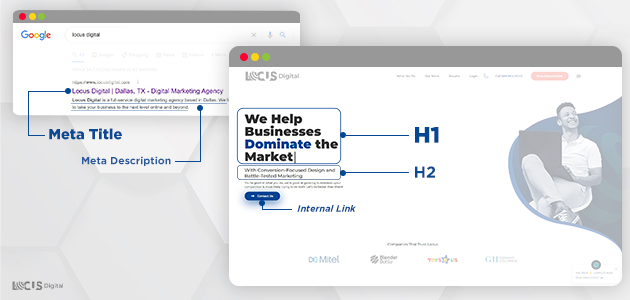
It's high time to deviate from the theoretical knowledge and dive straight into the practical.
Of course, it's good to know what SEO is and how Google stalks your website, like every sane and well-adjusted person does with their crush or ex on Facebook. However, this is pointless if you don't have the practical skills to apply all this knowledge to your benefit. And the benefits are plentiful.

So, while every aspect of SEO is very important, today, we will talk a bit more about on-site SEO since that's the easiest part of the job. On-site SEO is hands down the most essential process you need to ace, so you can get a nose bleed from the height of your Google rankings.
It's essentially the equivalent to your sweet, sweet content, only not for your living and breeding customers, but rather for the hundreds of crawlers infesting your back-end, looking for the meaning of your website (and probably their existence).
So, without wasting any more precious time, let's dive right in.
What Is On-Page SEO
Let's start with the boring definition (as if anyone will ever remember it or use it). On-page SEO optimization is the process of configuring various front and back-end components of your webpage to accommodate the search engine's needs and to translate your content in their "language".
Configuring your on-page SEO is not that hard of a job. Making it perfect so that every crawler would fall madly in love with it, is a different story. There are dozens of factors that will determine your ranking position, but if you want to be even in the race, then there are several components you should look at like:
- Meta title
- Meta description
- In-text tags
- Content quality
- Content structure
- Mobile-friendliness
- URL quality
- Image quality and alt-texts
- And many more...
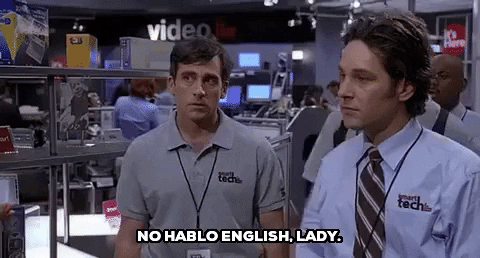
There are a lot of things that could be said for on-page SEO (and believe me, I won't skip anything in the upcoming pages), however, there is one thing that we should clear out right now. On-site SEO and off-site SEO are two completely different and equally important parts of your general website SEO.
Shocking, I know. Nonetheless, I must include this otherwise pointless remark because many people think they are done once they optimize their on-page SEO. That's not how SEO works. The on-site SEO consists of the mixed I listed above.
Off-page SEO, on the other hand, has much more to do with optimizing your internet presence, including social media, other websites (via backlinks {add the backlinks article here}), and much more.
Now that this surprisingly needed clarification has been done let's push ahead.
Why On-Page SEO Is So Important
On-page SEO is crucial for your website because that's how it talks to Google. It's like the Zoom of your webpage, and without it, Google simply won't work with you. Of course, all other search engines as well, but who cares about them?
Yes, Google is that demanding. But when it comes to it, the on-page SEO is, as mentioned above, what translates your content in Google's language. That's why it's essential to be done correctly. Otherwise, it would be like writing to your customers with unproper grammar or hUriffiK spelling.
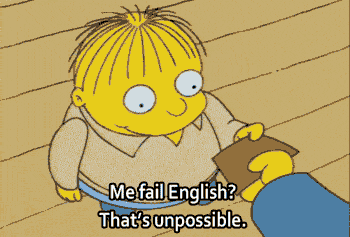
Best Page Title Tactics
When it comes to optimizing your On-Page SEO, it's always a good idea to start from the very top- the page title. While inside your content, you can have your imagination run free and add as many powerful and enticing words in your headline as you see fit, when it comes to your meta title, there are some very strict rules you need to follow.
And while you might be rightfully pissed off when you have to meet all of Google's demands and still keep some relative sense for your human readers, the title page is one of the most important factors of your on-page SEO, so it's well worth the trouble. Through this small text, everyone, man, machine, cyborg or confused air conditioner, should understand what your website is all about, what you will show them, and more importantly, why they should care.
This may sound easy enough, but remember that you have only 70 characters to relay all this information. Otherwise, Google will cut your headline, which usually leads to a drop in popularity, traffic and ultimately, Google ranking.
One excruciating mistake many newbies make when constructing their meta title is to list a bunch of keywords they want to rank. Not only that doesn't help, but on the contrary, it harms your cause. Your title tag should be coherent and just as readable and understandable for the average human as it is for the machines.
Adding a keyword is effective and very much recommended, but it should be integrated naturally in your headline. Google actually penalizes pages that stuffed their meta titles with keywords like a tardy turkey that slept through the president pardon before Thanksgiving.

Furthermore, your meta title should be relevant to your page. For example, you can't discuss the differences between the dialects of the different tribes in Togo, and at the same time place "Justin Bieber's new look is sexy" in the meta title. You will get penalized.
Remember that your meta title should sound appealing despite all regulations imposed by Google. The easiest way is to add some powerful words and numbers. A late 2020 research (a bit dated, I know, but still the most recent we have) by Danny Foster from Medium Meister shows that 41% of all top-ranking articles in Google contained a number.
Last but not least, try to include your domain name in the headline. If you can't, though, and you need to sacrifice something, the domain name should be the first to go.
Now that we have a basic idea of writing a meta title let's continue to the second most important part of your on-page SEO - the Meta Description.
Write A Meta Description Like A Pro
Meta descriptions are the small texts that appear under the headline when you see the results in Google. While, according to Google, the meta description has little to do with your actual ranking, this is not precisely so. The meta description offers you the perfect chance to add some more details about your page and what you offer, and by doing so, incline more people to click on your link.
Furthermore, it is invaluable when trying to rank for a longtail keyword. If you don't know what a longtail keyword is, there is no shame in that. Just visit our blog post on the topic. We can wait for a bit. Ready? OK, let's continue.
To make your meta description a vital part of your on-page SEO, place the longtail keyword precisely as they came up from your research. Don't deviate words, and don't switch their places. If you change the word's places, the algorithm won't register the specific word sequence, and you won't win additional traffic.

That's actually the only tricky part in the meta description. Otherwise, it's good to keep it under 120 characters (since that's where Google cuts it off when searching on mobile), or if you are insane and you truly want to see the world burn, you can go up to 160 characters. And, as you might have already guessed, you should make a unique meta description for each one of your pages. Recurring meta descriptions get penalized by Google.
Finally, avoid auto-generated descriptions like the plague. We genuinely feel burning hatred towards people, using auto-generated meta descriptions. This shows the level of determination of the website owner, or more accurately, how lazy they are, which is frustrating. More importantly, Google shares our view on that.
Following these few simple rules will make your meta description a vital on-page SEO asset. Now let's turn our eyes towards the main course - the actual content.
How To Plan Your Content
We've already discussed a whole bunch of innovative and valuable tactics for gathering ideas here, so we will mention just a few of them. Basically, your longtail keyword research is the key (pun intended) to great, high-quality and exciting content.
The easiest way to do that is through Google auto-search. Just write "What", "Where", "When", "How", or any other question in front of your keyword, get a pen(or a keyboard) and start collecting ideas like a small fat Italian plumber collects coins and mushrooms to feel big.

Another useful Google tool is the People ask also box right under the top result. This is a great place to see what people are interested in. Just follow the rabbit hole, but stay focused. You are always just a few clicks away from a snake attack video, and those are hard to stop watching.
To fully utilize what Google has to offer, you can also scavenge the related searches.
Finally, one of the best ways to find a relevant topic without any extra work on your part is by checking your competitors. Why waste time investigating and analyzing hundreds of ideas when you can just borrow an article from your competitors and make it more interesting, more fun to read and with better on-page SEO.
However, deciding what you will write is not even a 10th of the work. When it comes to creating original content that compliments your on-page SEO, you need to be prepared to play once again "Simon says" with Google.
Creating Original Content For Humans And Machines
Your content sadly has nothing to do with your interests. Even if you find a topic fascinating, there is little point in covering it if it doesn't have any search intent. All of your content must follow what people are searching for in the search engines and what questions they have.
Otherwise, there is no incentive for Google to rank your website higher. Believe it or not, plagiarism is a big no-no. You must keep your originality at 90% or more if you wish to be ranked. Stealing some great piece of content from your competitors is not just ethically wrong but will also get you punished by Google.
Weirdly, if you translate a text from another language, though, Google doesn't find it as a problem. It's still morally questionable, but at least you will have some great content for yourself with little work and no research. If you decide to stoop to this level, just avoid using Google translate since its translations are as bad as the Cowboys' defense.
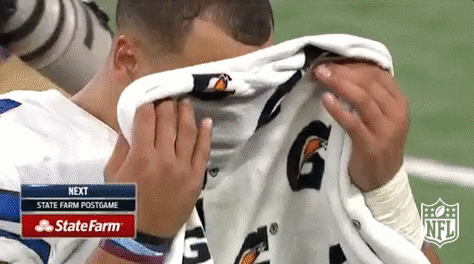
For your on-page SEO to be efficient, you must add short and longtail keywords in your article. You should use the keywords in your headline, in your first paragraph and inside your first 150 words. This is a bit hard when you are trying to use foreshadowing to make your text a bit more enticing, but your audience is both human and machine, so compromising is the only way.
Moving forward, your content should be relevant to your website's topic. So, for example, if you offer sheep laxatives, you can't create content for sports cars simply because they are more relevant and more people will look for a related topic.
Of course, you can always write about what happens when a sheep that just took its laxative enters a $2.5 million Lamborghini. This will surely grab some attention. You should also know that heavy slang, curse words, and especially slurs should be avoided. Google really dislikes putting the F word on top of its page.
So to put it simply, all you have to do is find an original topic that the audience is generally interested in, write a well-researched original article, always add text, even if you are creating video content, make your content useful, avoid slang, slurs and curses, and keep it in the scope of the theme of your website. Easy, right?... Right?
Once you are done keeping Google happy with your content, it's time to format it, so your on-page SEO efforts aren't hindered.
Formatting Your Content For The Win
Using body tags for your headings is one sure way to point your headlines and inner headings to the crawlers. Every single page on your website needs an h1 tag (or <title> tag). This is the headline, the most important sentence, the one that will convince the audience to read your article or watch your video. While a clickbait headline will do wonders in tricking people into entering, search engines won't be amused, not even the slightest bit. Google really hates it when you lie.

For the inner headings that you will tag with h2, h3 and so on, you need to make them attractive. Try putting your keywords in them as much as possible, but not at the price of losing their appeal. Always use the headings tags hierarchically.
When it comes to the content, you should make sure it is legible and not frustrating to look at. Use a good font size that is easily readable - 14px and above. Use underlining, bold, and italic to highlight essential parts of the content. Needless to say, this won't work with video.
Make sure your paragraphs are no longer than 3-5 sentences. One thing you should avoid is putting one-sentence paragraphs just because. It's more frustrating than trying to catch a paper bag in a storm. A very important part of your formatting is the picture.
How To Include Images And Multimedia Effectively
Needless to say, placing simply an image (or other media) in your text without any connection to your page won't help you with your on-page SEO. You must always strive to put original images, videos, gifs, or others to make your media matter. This might be a bit hard to achieve, but the benefits are worth the effort.
When inserting an image, always make sure its size is optimized. The bigger the size (in bytes) of the image, the longer it will take to load it, which will affect your site speed and consequently your SEO.

One thing that Google truly loves is placing an alt tag that describes the image. It helps the crawlers "read" the picture and understand it, so it helps the search engine determine that you offer not just text but a proper visualization. Moreover, in this regard, you should always optimize your media's filename. It really doesn't help your cause when your image or video is named "ighfsdhfiwuehfksjdfa". And while we are on the topic of incomprehensible gibberish as names, you should consider optimizing your URL as well.
URL Optimization
It's a common mistake among people that are unfamiliar with the concept of SEO to leave their URLs messy, unstructured and generally unrecognizable. It's not uncommon to find a URL with a sequence of letters and numbers that is either written by an extraterrestrial or is Elon Musk's newborn's name. Instead, your URL should be clean and straightforward. You might think that people don't care about it, but a tidy URL conveys security, and it helps search engines determine what you are all about before even entering your page.
To make your URL SEO-friendly, first, you need to deal with its structure and then optimize your slug. The slug is the tail of the URL, which is the "address" of your page. So, to keep your URL hierarchy intact, all you need to do is follow your clicks. First, there is your domain. Then you have a directory (for example, blog, market, menu, etc.), and then you have your page (your slug).

To optimize the slug to be as SEO-friendly as a slug can be, just remove all unnecessary words, add up to two keywords and keep it understandable. That's all there is to it.
Links Are The Perfect Search Engine Guide.
Internal links are a cornerstone of SEO since they take the search engine crawlers around your page. They also tell the search engine which is the most important page on your website - the one that has the most links pointing to it, duh. So when you are using a link, you should be mindful of whether you want to promote the linked page.
As you probably already noticed, Google genuinely dislikes forced attempts to make yourself more appealing to them. So only use internal links if they are useful.

The same goes for the external links you will be using. They should bring value to your content and not just try to associate your domain with some authoritative website. External links are a blessing when appropriately used since they help search engines determine what site you have and your primary industry.
Furthermore, using links to share your references elevates the quality of your content. External links, however, are not the only way for the crawlers to determine your website's topic.
Allow Comments On Your Posts
Through comments, search engines can find why people come to your page. This is the main reason why you should keep them on your posts. However, don't just let people spam your page. Moderate every comment before publishing it and choose only those that align with your goals. Too general comments, even if they are nice, bring nothing to your on-page SEO efforts. The same goes for irrelevant comments and spam. And you will receive a lot of spam.

Finally, you should always reply to the comments. It establishes a great sense of community on your website, and more importantly, the commentator will be extremely happy to hear your response. After all, when all is said and done, you are doing these efforts for your audience, and not just to please some servers in Iceland and Ireland or any other country beginning with "I."
Be Mobile-Friendly
Keeping in mind that more than 50% of the global population uses their phones to browse the internet, being mobile-friendly is not just an SEO necessity but just common sense. Moreover, Google is fixated on pushing mobile-friendliness, favouring well mobile-optimized websites even for desktop searches. In general, a mobile-friendly website will bring you more organic traffic, better CTR, and ultimately higher revenue. So investing a portion of your time and money in developing it is anything but wasted.

Let's Recap
Wow, that turned out long. That's simply because on-page SEO has so many aspects, and we only covered the most essential among them. The 25 or so minutes you invested in reading this is well-spent, and while we urge you to reread this article at least one more time, we do understand that time is short. So here is our TLDR.
If you want to be visible on the Internet, SEO is mandatory. You have two types of SEO- on-page and off-page. We are focusing on the former as it's the one that's easier to be done alone and is crucial.
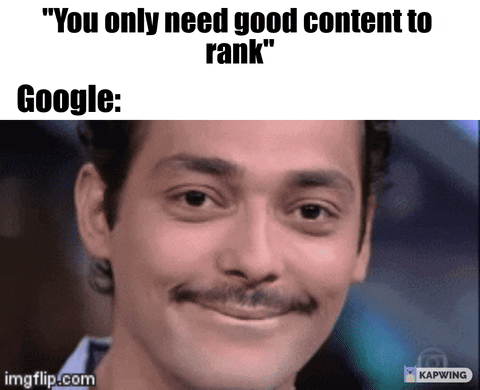
Your On-page SEO begins with the title, or more precisely, the meta title. To create the perfect meta title, all you need is to follow Google's instructions. The same goes for the meta description, which is the perfect place to implement your Long tail keywords.
You should always plan your content based on your target group's interests. Using Google's tools for inspiration is a great idea. When it comes to content, Google's demands are pretty restricting, but they ensure your content will remain high-quality. Formatting the content will make it more readable for your audience and the crawlers, so always do it on your pages.
Implementing images or other media should always be done effectively and not just slapping something for volume.
When it comes to your URL, it should have its hierarchy in order, and the slug shouldn't be gibberish. The links you are using should be a strategic weapon that navigates Google and tells it what you want the search engine to hear. The same goes for the comments under your post.
Finally, make your website mobile-friendly. It's not only going to help you in your efforts to wow Google, but it will reach more people that are surfing the net through their phones.
This might sound a bit overwhelming for a person who has little experience with SEO. If you didn't understand this article in its entirety on the first read, it's perfectly normal. It's probably a good idea to let someone who has expertise in SEO take care of your web pages.
It just so happens that we are a company that lives and breathes SEO. Locus Digital is one of the best search engine optimization agencies based in Dallas. We have helped hundreds of companies across the country with their websites and SEO.
Find out how we can help you. Click on the button below to schedule your FREE consultation.


